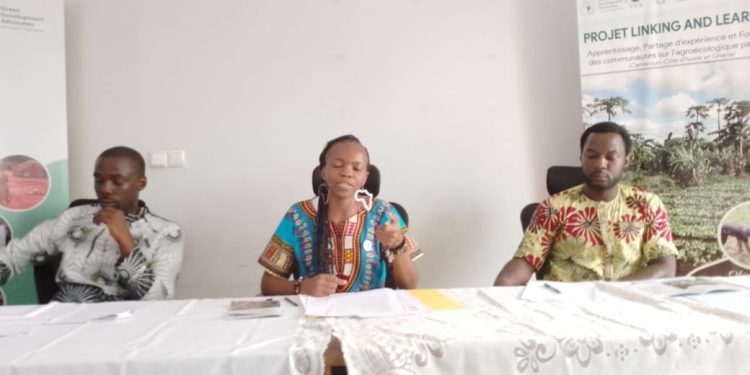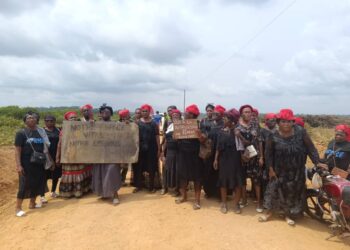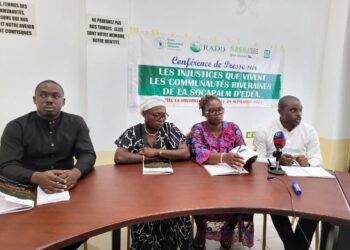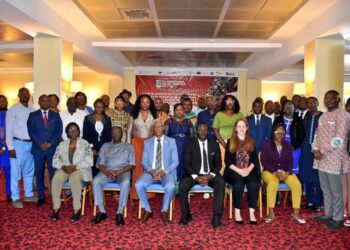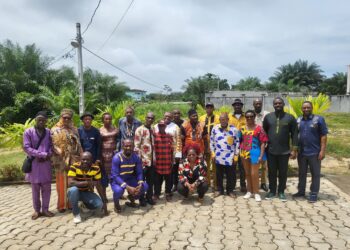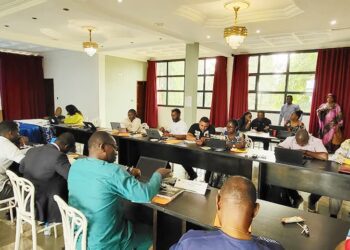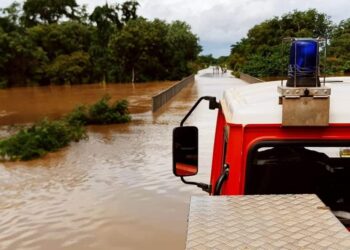Story, Louvier Kindo Tombe
The Ebo Forest in the Nkam and Sanaga Maritime divisions of the Littoral region of Cameroon is again a private state property. 68,385 hectares have been classified as a Forest Management Unit (FMU), by a prime ministerial decision of 27 April 2023. This is the second time the forest is been classified by same government official within a period of less than 3 years.
“This is the same forest that was classified in July 2020, and the decision withdrawn just a month after by the prime minister and head of government,” Jean Henri TSOGO AWONA, Project Manager at Green Development Advocate (GDA) told reporters in Yaounde.
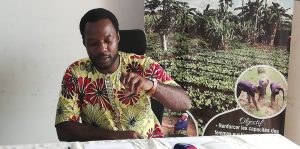
He was reacting during a press conference organized to throw more light on how the re-classification of the forest will impact biodiversity and interests of local communities around the Ebo Forest.
The forest according to civil society organizations is home to a unique biodiversity including the largest population of Nigeria-Cameroon chimpanzees.
“This is the only chimpanzee population in the world with both the ability to crack nuts and extract termites,” Ekane Nkwelle, project manager at GDA told News Upfront.
The forest is equally rich with forest elephants, at least 12 new plant species for science, a diversed bird community and most especially it is a rich carbon reservoir.
“The recently re-classified FMU stores around 35 million tonnes of carbon,” Ekane Nkwelle said.
The FMU is host to over 40 local communities. It is culturally important with ancestral and secret sites of both customary and economic importance.
The civil society organizations strongly believe that the recent re-classification will impact negatively on the biodiversity and livelihoods of the riparian community.
The problem

When the Ebo Forest classification decree No. 2020/3216 of 14 July was withdrawn by decree No. 2020/3900/PM of 6 August 2020, the idea was to mitigate the negative consequences on the population. Yet, the factors that led to the withdrawal of the FMU classification of the parcel of forest in 2020 are still very relevant.
The civil society organizations are questioning the backpedaling by the prime minister in particular and the Cameroon government’s overall vision for forest resource management as a whole. To them, “something is wrong somewhere, and which need to be made right”.
Imperative need to withdraw the decision
The re-classification of the Ebo Forest is a means of opening it up for logging activities which will have harmful consequences on the environment and surrounding inhabitants.
In their press release, the different civil society organizations are calling on the prime minister and head of government, chief Dr Joseph Dion Ngute, to reverse the decision, and use the forest area otherwise.
They want the government to rather “create territories and areas conserved by indigenous peoples and local communities”. The government could either “create a community forest or a protected area co-managed by the state and local communities”.
Their position is also that of setting up initiatives that will go a long way to enhance ecosystem services.
Also read: Declaration from CSOs on the re-classification of the Ebo Forest.
